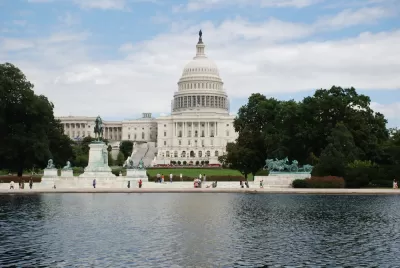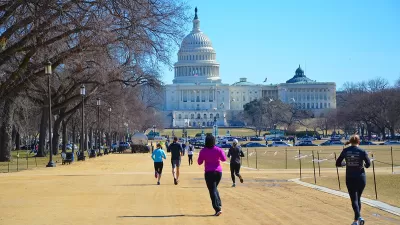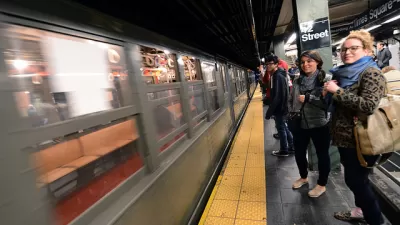Unlike the House Appropriations Committee's DOT budget that reduces spending by almost 4 percent from current levels and eliminates the TIGER grant program, its Senate counterpart increased transportation spending, including the TIGER grant budget.

The Senate Appropriations Committee voted 31-0 on Thursday to increase transportation spending by $978 million, or 5.5 percent above current levels. It also increased the budget for the Transportation Investment Generating Economic Recovery (TIGER) grant program by 10 percent to $550 million.
"Sen. Susan Collins (R-Maine), who chairs the Senate subcommittee on transportation and housing, said it was important to increase funding for the grant program given the poor condition of the nation’s infrastructure," reports Melanie Zanona for The Hill.
She was heard on a hot mic earlier in the week calling the administration’s approach to its budget proposal “incredibly irresponsible.”
Another difference with the House Appropriations Committee, which passed its transportation budget on July 17 by a 31-20 vote, was the level of funding committed to the Capital Investment Grants (CIG) program administered by the Federal Transit Administration. While both committees decreased spending for this vital program, the House did so by $659 million, or 28 percent, to $1.7 billion.
The Senate bill provides a total of $2.133 billion for the the CIG program, "fully funding all current 'Full Funding Grant Agreement' (FFGA) transit projects, which is $280 million below the FY2017 enacted level," according to Chairman Collins.
"Amtrak: The Senate bill rejects the Administration’s proposal to eliminate long-distance routes and provides Amtrak with the fully-authorized level of $1.6 billion, $105 million more than fiscal year 2017," notes the minority news release. The House committee had authorized $1.42 billion which is $67 million less than the FY2017 enacted level.
Both the House and Senate Appropriations Committees rejected the 13 percent DOT budget cuts in Trump's budget and fully fund the Essential Air Service program that provides air service in small and rural communities, which which proposed for elimination.
FULL STORY: Senate panel approves funding boost for Transportation Department

Alabama: Trump Terminates Settlements for Black Communities Harmed By Raw Sewage
Trump deemed the landmark civil rights agreement “illegal DEI and environmental justice policy.”

Study: Maui’s Plan to Convert Vacation Rentals to Long-Term Housing Could Cause Nearly $1 Billion Economic Loss
The plan would reduce visitor accommodation by 25% resulting in 1,900 jobs lost.

Planetizen Federal Action Tracker
A weekly monitor of how Trump’s orders and actions are impacting planners and planning in America.

DC Extends Application Window for Outdoor Dining Permits
District restaurants will have until the end of November to apply, but businesses with permits in rush hour parking lanes must end operations on July 31.

Wind Energy on the Rise Despite Federal Policy Reversal
The Trump administration is revoking federal support for renewable energy, but demand for new projects continues unabated.

Passengers Flock to Caltrain After Electrification
The new electric trains are running faster and more reliably, leading to strong ridership growth on the Bay Area rail system.
Urban Design for Planners 1: Software Tools
This six-course series explores essential urban design concepts using open source software and equips planners with the tools they need to participate fully in the urban design process.
Planning for Universal Design
Learn the tools for implementing Universal Design in planning regulations.
Caltrans
Smith Gee Studio
Institute for Housing and Urban Development Studies (IHS)
City of Grandview
Harvard GSD Executive Education
Toledo-Lucas County Plan Commissions
Salt Lake City
NYU Wagner Graduate School of Public Service





























